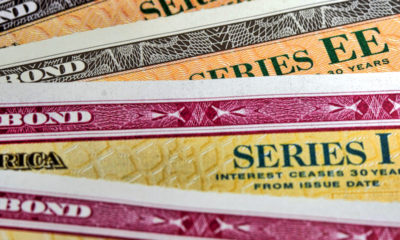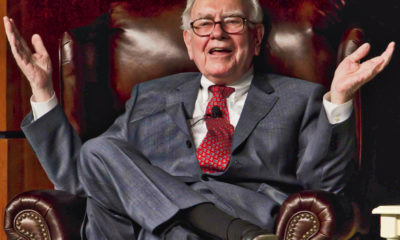bank
Bill Gross Is Short The German Bond Market

In April 2015, Bill Gross backed shorting on German bonds. He publicly stated on Twitter that the German 10-year bond was a lifetime opportunity.
Bill Goss and the German Bond
Bill Gross, a fund manager at Janus Global Unconstrained Bond Fund, declared in April 2015 that investors should lessen their money towards German bonds.
His comments came in response to the German 10-year bond yields falling to their lowest recorded levels since the European Central Bank started to purchase bonds from the public sector.
German yields were trading at 0.095% while US Treasury yields were trading at 1.92%. There had been a steep decline in bond yields over ten years.

Little risk
Gross has stated that as the yields are so low, there is little risk involved and would not cost investors anything, in fact, he speculated that returns would be in the margin of 10% to 15% over 1-2 years.
Gross was confident in his assessment that the most important factor would be timing. He pegged this as the perfect opportunity for short sellers.
What happened next?
Bill Gross adopted the remote method while shorting his German bonds. The strangle investors holding a call and a put when trading.
However, when the German yields started to double, the bond began to sink. In response to this Gross said that it was his execution that was off and not his timing.
Gross expected the bond to trade in a narrow range and then rise; he did not predict the yield to spike suddenly.

What went wrong?
When Gross made his statement, other investors took note and agreed with him. This agreement created momentum in the market as other as more and more people started to following his lead.
However, the momentum started to create volatility in the trend, which in turn caused the price of the funds to lower.
German bonds today
Currently, the German bonds are trading around the 0.063%, prices have slowly been declining since January 2016 and have fallen to their lowest level in over a year.

One of the reasons for this decrease in the German bonds has been the growing uncertainty in the Eurozone. The upcoming referendum in the UK and some other countries considering leaving has created a sense of unease.
Europe falling apart
There has been reports and speculation that Europe could break apart for months.
David Cameron, the Prime Minister of the UK, is currently offering the UK a referendum to decide if they should leave or remain in Europe. The following are the reasons –
- Trade restrictions
- Loss of legal control
- Open borders
- No influence over EU policies
- Penalized for a growing economy
The biggest conflict has been the undemocratic nature of Europe. The system has been set up so that nothing can pass unless all 28 members agree. Often other European nations will not agree to changes without substantial concessions or incentives.
The European Union has controlled the finances of each member country and exacerbated the economic crisis. The open borders have also raised immigration to unsustainable levels. The controlling nature of the EU has lead to an increasing number of people demanding reform or exit.
The social and economic policies of the EU are unsustainable. This lead to the member states becoming increasingly frustrated.
Germany's role in the EU
Germany's economy relies heavily on exports to other countries. Germany has managed to escape the current export crisis that has hit other countries. Germany is, however, is currently monitored by the US Treasury Department for potential currency manipulation.
Germany is currently a significant creditor and is a safe place in the EU to store money. Many of the countries that Germany has loaned money to are now struggling with the unpaid debts.
Germany is a dominant figure in the EU and has the fourth largest economy however this could soon change. If Germany is unable to prevent any further crisis, then the effects will be global.
Germany relies on Europe just as much as Europe relies on Germany. Some of the reasons Germany is fighting for the EU are –
- The majority of German politicians pro-European Union
- The risk of domestic and foreign media criticism
- Germany has invested a lot of money into Europe
- Failure would mean admitting they were wrong
Conclusion
Bill Gross predicted over a year ago that going short on German bonds would result in an easy profit for traders. However, Gross's executions and inability to know that German yields would rise so quickly meant that he lost out.
The 10-year German bonds currently priced low and there are some factors to blame for this; the main contributing factor is the uncertainty surrounding the Eurozone.
Germany plays a massive part in ensuring stability in Europe through its exports and money lending. However, the long-term sustainability of this is under threat, and if Germany falls then, the effects will be global.
With all of these said, the future of Germany and Europe is uncertain.









